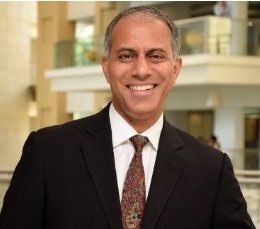Young leaders advised to value their roots, develop confidence, take ownership and be conscious of privilege

03 SEPTEMBER, 2020: B.P. Biddappa, Global Vice President HR – Home Care, New Business Models and Firm of the Future, Unilever, addressed IIMB students at the EPGP Seminar Series lecture on September 02, 2020.
Elaborating on the multiple aspects of ‘Leadership during Global Challenges’, he explained that organisations and leaders are seeing four key shifts – being more connected than ever before, dealing with an increasingly multipolar world, a change in the balance of population as well as growth, and an imminent bio revolution.
He emphasized the benefits of focussing on fundamentals, such as valuing one’s roots, being conscious of one’s privilege, being confident in oneself and secure in one’s decisions, having a purpose, and being ready to take ownership, while moving into leadership roles.
Through entertaining anecdotes from his experience of three decades, he highlighted the importance of compassionate capitalism, cross-cultural relationships, sustainable growth, and the need for organisations to be agile and flexible in the post COVID world. He also encouraged participants to pick something exciting and important outside of studies and work, and make it a part of their daily lives.
Young leaders advised to value their roots, develop confidence, take ownership and be conscious of privilege
03 SEPTEMBER, 2020: B.P. Biddappa, Global Vice President HR – Home Care, New Business Models and Firm of the Future, Unilever, addressed IIMB students at the EPGP Seminar Series lecture on September 02, 2020.
Elaborating on the multiple aspects of ‘Leadership during Global Challenges’, he explained that organisations and leaders are seeing four key shifts – being more connected than ever before, dealing with an increasingly multipolar world, a change in the balance of population as well as growth, and an imminent bio revolution.
He emphasized the benefits of focussing on fundamentals, such as valuing one’s roots, being conscious of one’s privilege, being confident in oneself and secure in one’s decisions, having a purpose, and being ready to take ownership, while moving into leadership roles.
Through entertaining anecdotes from his experience of three decades, he highlighted the importance of compassionate capitalism, cross-cultural relationships, sustainable growth, and the need for organisations to be agile and flexible in the post COVID world. He also encouraged participants to pick something exciting and important outside of studies and work, and make it a part of their daily lives.
